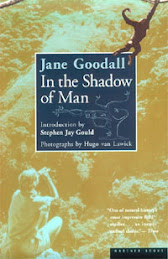
I Know Why the Caged Bird Sings
by Maya Angelou
I had heard of Maya Angelou's book I Know Why the Caged Bird Sings, mostly referred to as classical American and African American literature, and I was familiar with much of her poetry due to American literature classes in high school. What I did not know is that I Know Why the Caged Bird Sings is an autobiography that was written on a dare. After hearing her life story, writer James Baldwin and editor Robert Loomis challenged Angelou to write it as a piece of literature. Angelou succeeded so exceptionally that some reviewers do not categorize it as nonfiction. Indeed, I was a quarter of the way through the book when I learned this, and had assumed that it was fiction.
Angelou's story begins in the deeply segregated Stamps, Arkansas, where she and her brother live with her paternal grandmother and her uncle. She speaks powerfully to her and her brother's feelings of abandonment as she describes how they were treated as baggage during their journey. A longing for love and acceptance from both of her parents laces throughout the work, and perhaps even intensifies during the periods where she lives with each of them, separately.
A second theme that Angelou weaves throughout her text is the effect of racism on herself and her brother. When Angelou gets a maid job in a white woman's house, she is re-named Mary by the housemistress, who seems to think it is a compliment. She only regains her name by breaking a favorite dish, then being abused and thrown out. The hurt and fear visited upon the child Maya is apparent through her silent defiance, although it becomes more intense as she talks about her brother, Bailey.
The third theme that Angelou's work engages is the misogyny and sexism which deeply impact her childhood. At the age of 8, Angelou was sexually abused and raped by her mother's boyfriend. The fear and confusion she felt is conveyed by her abuse being intensely connected with death. With this connection Angelou draws a powerful parallel known intimately to rape survivors: namely, that rape is a waking death that will always be a part of you. The fear associated with womanhood follows Angelou through the book and this, combined with a lack of education about her own body - in those days talking about women's reproductive parts was considered indelicate for women - results in her becoming pregnant at 16. The book ends as she passes from naieve, fearful childhood to a womanhood where she can trust herself and her body.
I very much enjoyed reading I Know Why the Caged Bird Sings. Angelou not only wove her three themes together masterfully, but did so with lyric, humor, frankness and percipience. When I finished the book I was eager to learn what happened next, and I may dig into the sequels soon, although I have heard this particular volume was her pièce de résistance.



No comments:
Post a Comment